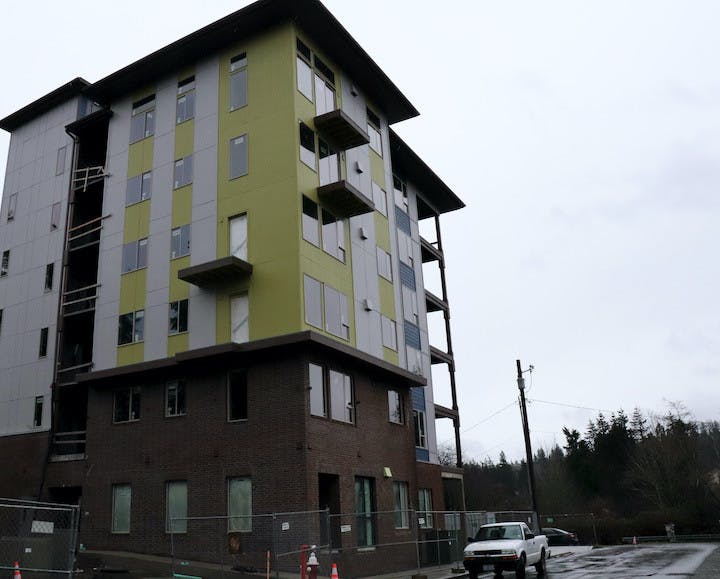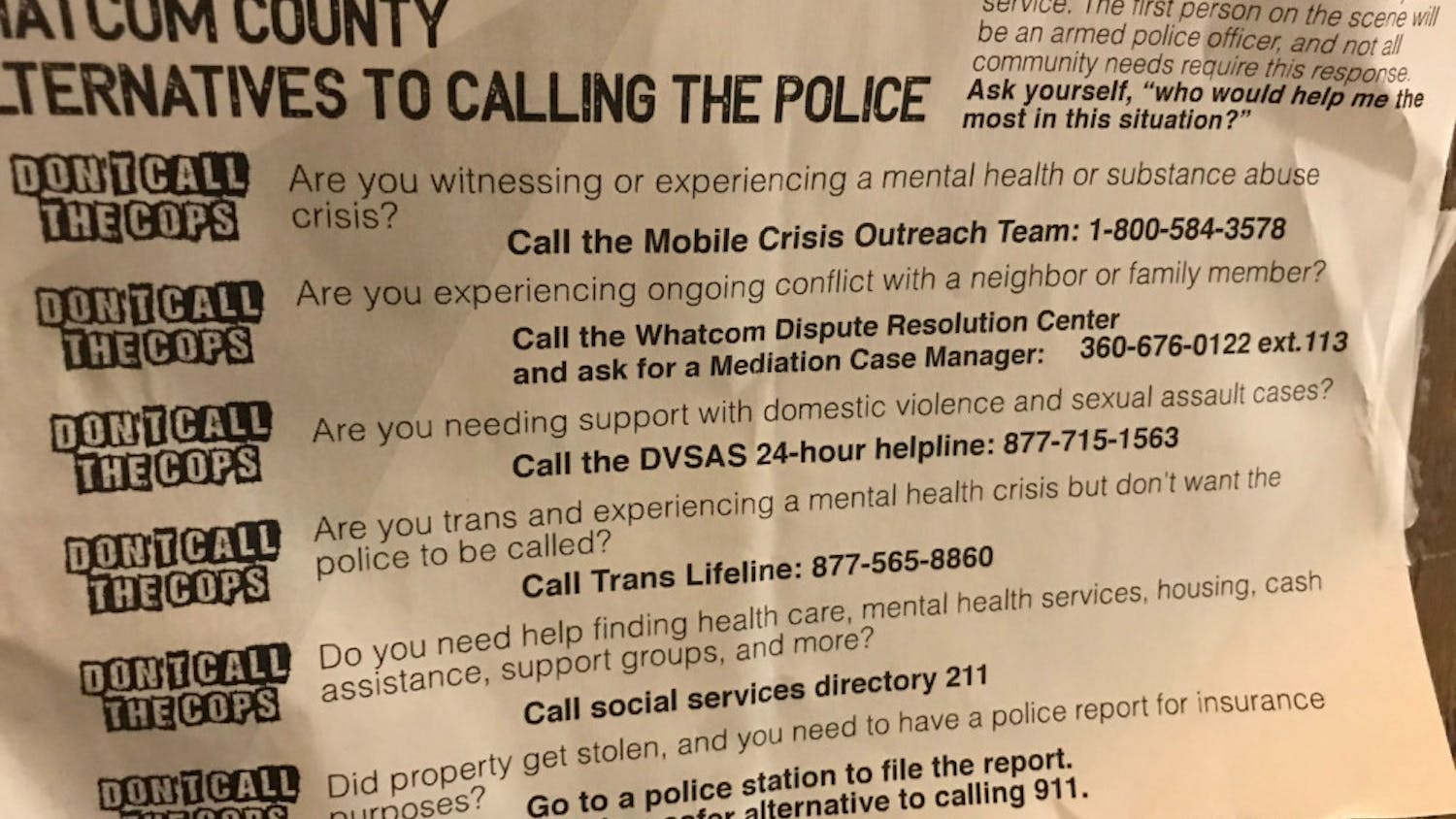As new construction soars across Bellingham, the local housing crisis remains unsolved

Construction at Samish Flats, a new apartment complex behind Western's campus. // Photo by Sadie Fick
Correction Oct. 8: The photo caption was edited to correct the name of the building featured. The article was also updated to remove information that was incorrectly attributed.
As homes go up, vacancies continue going down.
Despite new multi-family units appearing across Bellingham, construction cannot seem to keep up with the growing demand for affordable housing.
The Department of Housing and Urban Development defines affordable housing as any housing unit that costs less than 30% of the area median income. This means it changes from city to city.
Many new apartment buildings across Bellingham offer the same limited number of affordable units creating a vacuum of vacancy and affordable housing, leaving many unable to find permanent shelter within the city.
Data published by the Bellingham and Whatcom County Housing Authority shows 635 new residential units permitted last year. Yet, none of those were designated as affordable housing, said Brien Thane, executive director of Bellingham Housing Authority.
Although no affordable housing units were built in 2020, Thane said more are planned for the future.
“We will complete and lease 69 affordable apartments in 2021, and another 102 in 2022,” Thane said.
Despite the promise for more affordable housing in the next two years, many community members believe the city is still not doing enough to combat the housing problem.
Katherine Orlowski, Whatcom County resident, said she’s been trying for years to find affordable permanent housing in Whatcom or King counties.
“It was getting expensive paying for apartment application fees,”Orlowski said. “It takes thousands of dollars anywhere around here to acquire housing.”
A lack of rental history, income and access to technology can all create barriers when finding housing, Orlowski said.
“Lack of stable mail connection and lack of technology is a huge barrier especially during COVID[-19],” she said. “Many have been removed from the waitlists because of these reasons.”
Since November 2020, activists and unhoused Bellingham residents have been protesting the lack of affordable housing through the Camp 210 occupied protest at City Hall.
On Jan. 28, the City of Bellingham swept the encampment. Around 150 protestors attempted to prevent the sweep, leading to four arrests and three officers being injured. A number of residents relocated Camp 210 to Civic Field, which the city has indicated it also plans to sweep.
In justifying the sweep, city officials claimed Camp 210 increased the risk of COVID-19 transmission within the community.
The Centers for Disease Control released guidelines last year advising communities to avoid performing sweeps due to the potential of spreading COVID-19. Instead, the CDC recommends cities create hygiene facilities near camps and provide adequate space to help prevent the spread of the virus.
This trend of occupied protests and camps is not unique to the Northwest. Cities across the United States are seeing similar homeless camps in their urban centers.
On Sunday, Feb. 1, ten people were arrested in Olympia when an activist group called Oly Housing Now attempted to occupy the Red Roof Inn. The group released a statement claiming they occupied the hotel for "emergency pandemic housing."
Some cities have been attempting to address the problem through sanctioned encampments. In December, Denver opened its second sanctioned homeless camp downtown. In Indianapolis, the city council is considering establishing a permanent camp of their own downtown.
In the past, Bellingham City Council made attempts to help address the housing crisis in the community. In 2019, the City of Bellingham awarded over $500,000 to help fund local housing services — including $140,000 going to The Opportunity Council.
The Opportunity Council is a nonprofit private agency that advocates for those experiencing homelessness. The agency runs a coordinated entry program designed to connect providers of low-income housing and subsidies to those seeking it.
The program works by creating one application process for all partner providers within the community, instead of individuals having to fill out a different application for every housing opportunity.
But the coordinated entry program is not always a fast or convenient process for those who need immediate help.
Marisa Schoeppach, the supervisor for the Homeless Outreach Team at the Opportunity Council, said they are still dependent on the openings available at any given time.
“We're very reliant on the openings that our partner providers put out,” Schoeppach said. “Without that opening in our possession, we have nowhere to offer them.”
Samantha Batko, a researchers associate at the Urban Institute, said the quickest and most cost effective solution to any housing crisis is a program called rapid re-housing.
The Homelessness Prevention and Rapid Re-housing program was introduced to Congress in 2009. It allocated $1.5 billion to help reduce the number of people living without immediate shelter. The project was introduced as a cost-effective solution to getting people into permanent shelter and off the streets. It ended in September 2012.
“Rapid re-housing for people enduring living outside will help keep people from contracting COVID-19 and decrease community spread,” Batko said in a tweet.
The program worked by providing individuals with shelter first, without needing to meet key requirements, such as sobriety or having a source of income. It is a short-term process designed to quickly reduce the number of people living on the streets at any given time.
In Whatcom County, there are nearly 750 people without shelter on any given night, according to data published by the city. More information about the local housing crisis and opportunities to help can be found on the Opportunity Council’s website.



